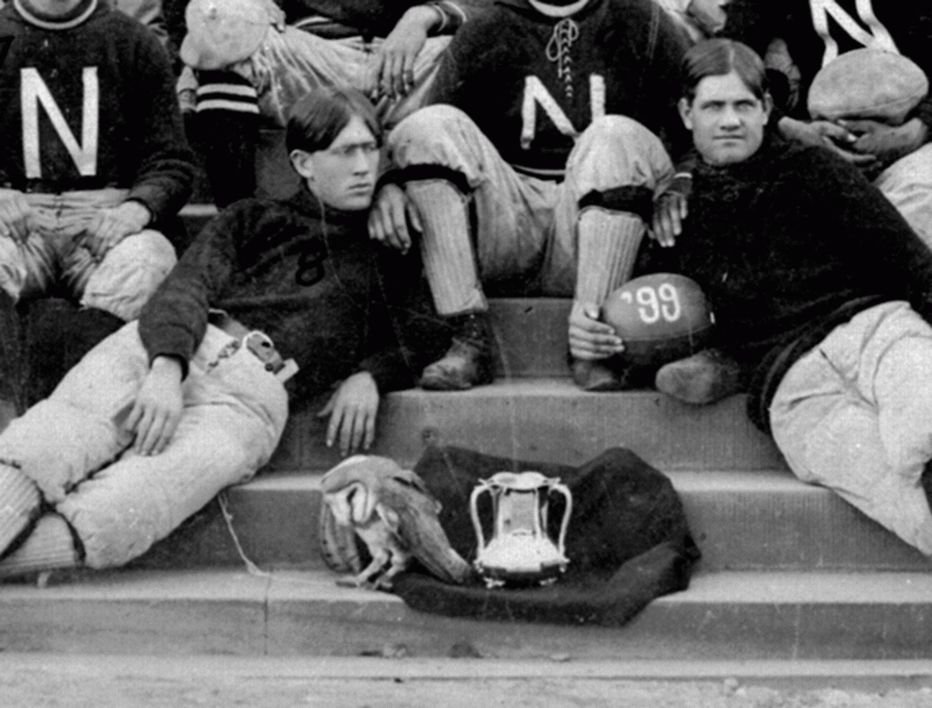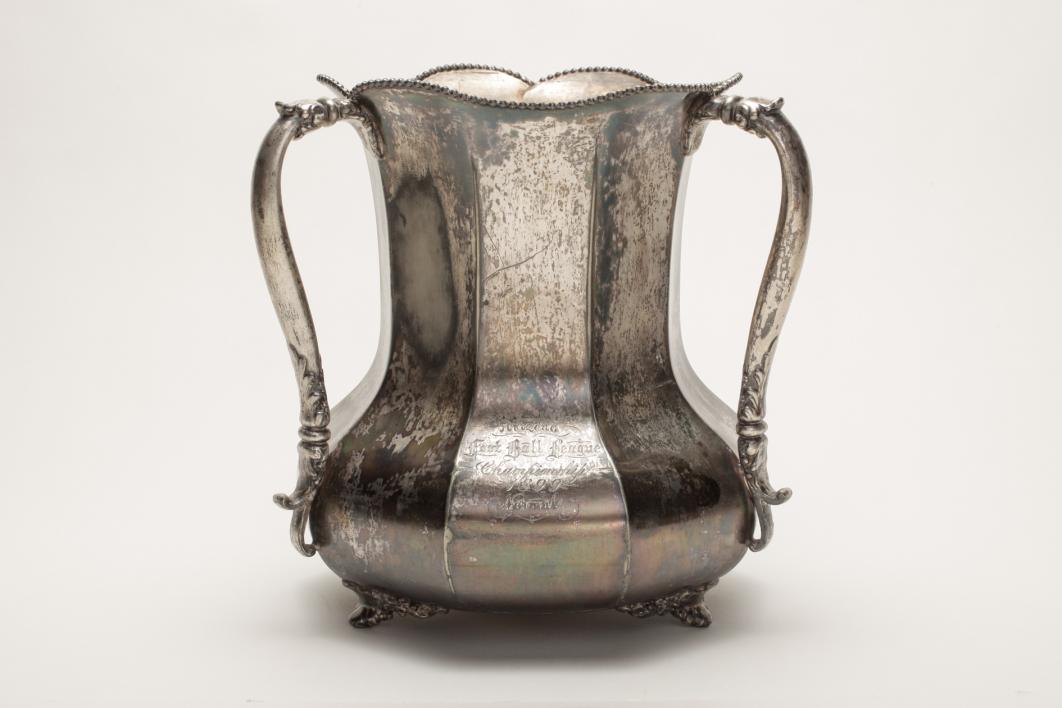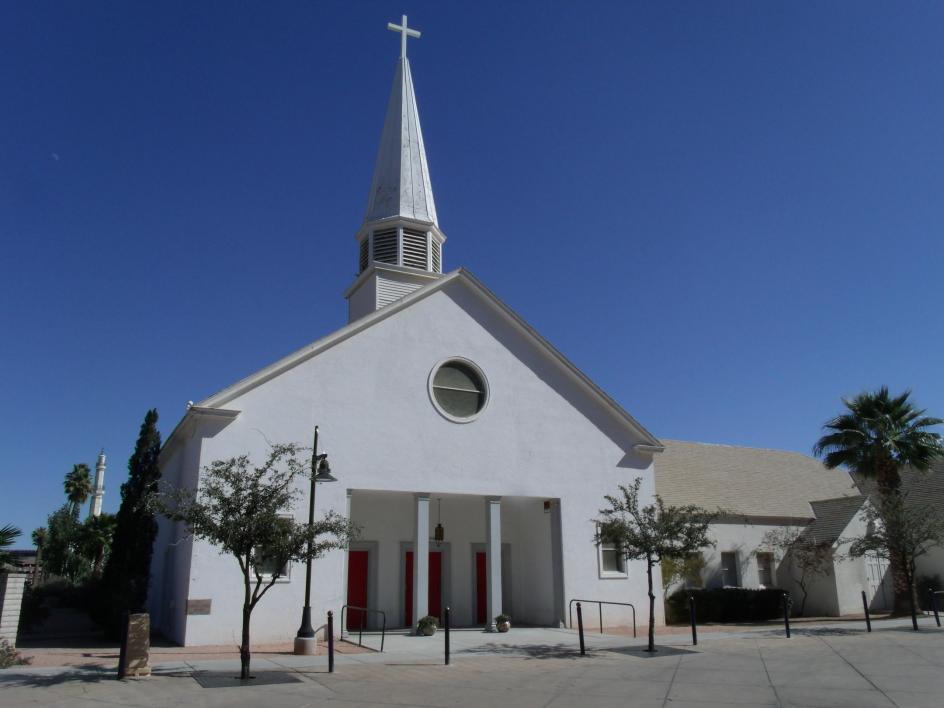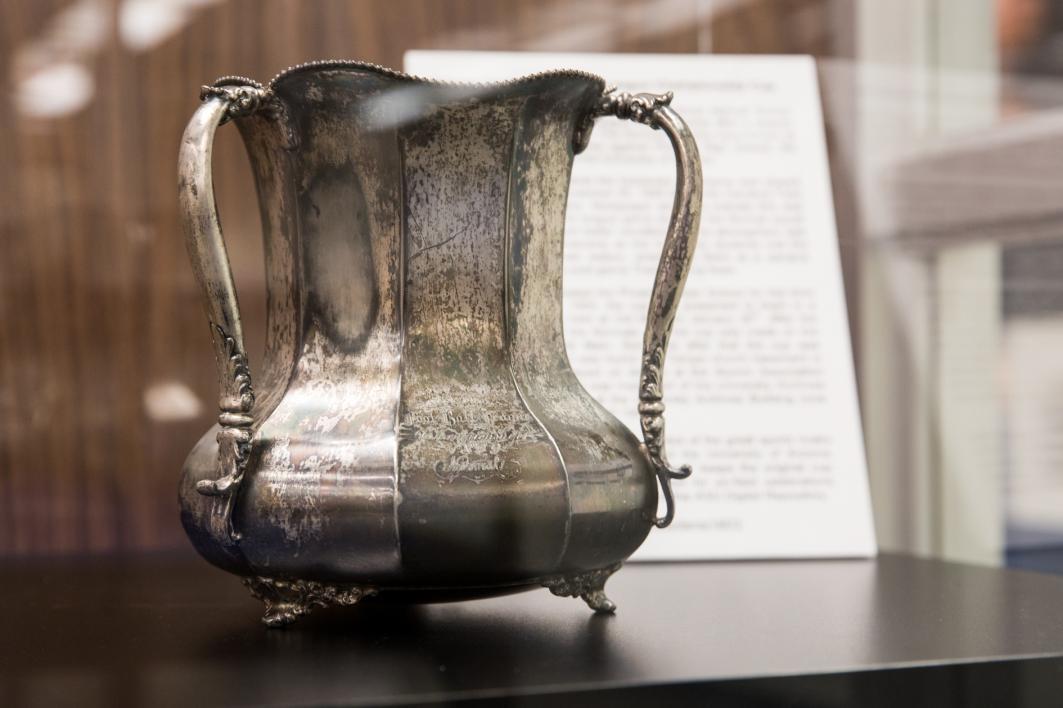When Sun Devil football players hoisted the Territorial Cup on Nov. 25 after defeating their in-state rival, the University of Arizona Wildcats, there was an imposter in their midst.
All the players who touched the cup were on the roster; all the coaches who cheered the victory were actively employed (at the time).
No, the imposter was the cup itself.
The trophy that got its fair share of kisses from the team after the victory is a replica, used to protect the 118-year-old original from the chaos of celebratory revelry.
This year, the actual transfer of the silver chalice from UofA to ASU took place six days after the win, and the ASU official in charge of obtaining it and bringing up Interstate 10 from Tucson is university archivist Rob Spindler.
“This has been one of the most fun things that I have done in my 29 years here at Arizona State University,” Spindler said of being the caretaker of the cup in the years it has lived in the Luhrs Reading Room at Hayden Library. “And it’s a great honor and privilege to defend and maintain this tradition on behalf of our great Sun Devil football teams and Arizona State University.”
That tradition dates back to the days before the Wildcats were in-state rivals — because the state of Arizona did not yet exist.
The cup was first awarded to the Territorial Normal School, the original name of the school known now as ASU. The year was 1899, and in the course of a season the Normal School defeated not only the University of Arizona, but others in a league that included the Phoenix Union High School and the Phoenix Indian School.
The Arizona Republican — what The Arizona Republic newspaper was called at the time — described the Normal School’s win over UofA as a victory of brawn over brain.
“The University boys showed the most skill and science, but they lacked the physical strength and endurance,” the paper reported. “The two teams placed in a balance, the Normals would have weighted at least a third more than the University’s. Weight tells in a football contest.”
It was that victory that earned the Normal School the prize of the original Territorial Cup, purchased, according to Spindler, from a manufacturer called Reed and Barton out of Taunton, Massachusetts. It cost $20 at the time — roughly equivalent to $500 now.
It was presented to the team in January 1900. Soon after, it disappeared for more than 80 years, only to turn up in a closet in the First Congregational Church of Tempe in 1983. It was returned to ASU’s possession.
In 2001, then-ASU President Lattie Coor and then-UofA President Peter Likins signed what was called the “Territorial Cup Protocol,” devising the system that stands today, in which the winner of the annual match up takes home the original trophy to display.
This year, Spindler drove down to UofA to meet with his counterparts, the Wildcat caretakers of the trophy, the Friday following the victory.
The cup travels in a hard-sided case with both ASU and UofA luggage tags attached, a testament to the friendly rivalry, and the fascinating backstory behind a piece of Arizona history.
More Sun Devil community

Photos: 2025 Polytechnic Open Door
Families explored sound, automotive technology and other engineering fun at Saturday's ASU Open Door, where the Polytechnic campus' specialities came into the spotlight.The free annual event welcomes…

Tourism touchdown: ASU students work behind the scenes at Super Bowl
Mariah Vergara is the first to admit she’s not a sports fan.In fact, she said she didn’t know a single player on the rosters of the Kansas City Chiefs and Philadelphia Eagles, who played in the 2025…

Photos: 2025 West Valley Open Door
After last week's ASU Open Door kickoff, the fun continued Saturday at the West Valley campus with visitors learning about crime-scene forensics, ecosystems, the brain and more.The free annual event…








